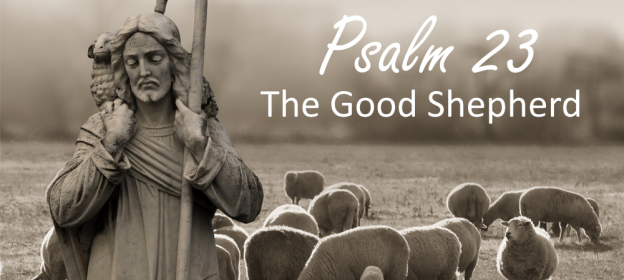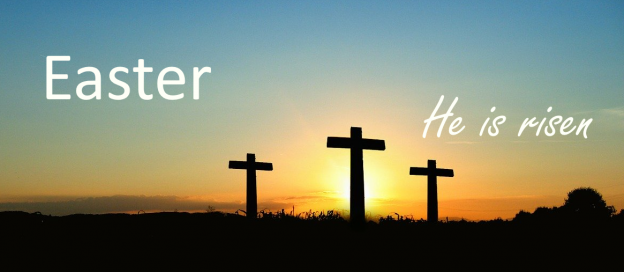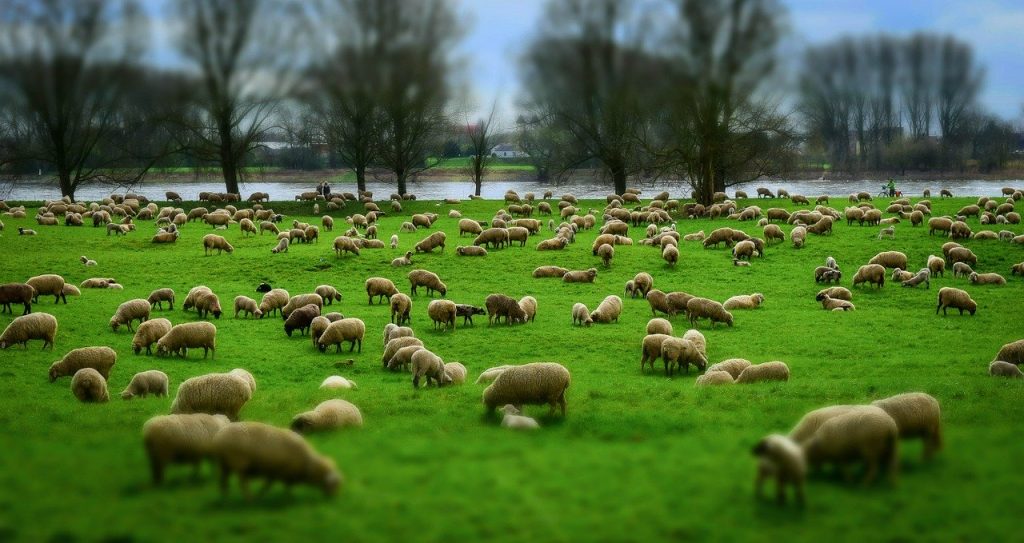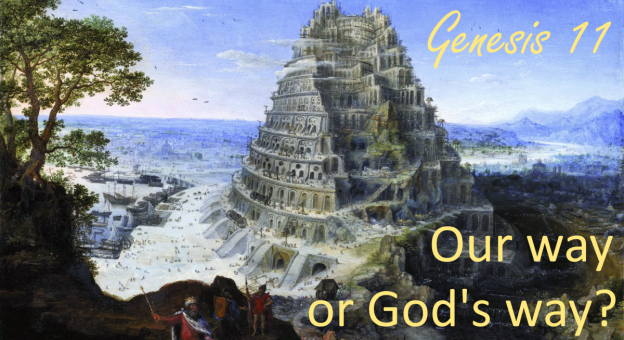“Even though I walk through the shadow of the valley of death”.
Psalm 23:4a
This week Psalm 23 takes a much darker turn. Life is not plain sailing, and Christians aren’t exempt from life’s troubles. This psalm was written by David in one of his darkest hours. What guidance can we draw from the Good Shepherd to get through?
Our passages: 2 Corinthians 4:16-5:10 & Psalm 23:4. Preacher: Ian Bayne (17th May 2020).
Watch the sermon
Recap
The LORD is my shepherd; I shall not want.
Psalm 23:1
Verses 1-3 speak of a time of plenty. The Bible says that God will look after us as a good shepherd looks after their sheep.
And my God will supply every need of yours according to his riches in glory in Christ Jesus.
Philippians 4:19 ESV
He’s given us food both physical and spiritual, through his Word.
He’s given us water which represents his cleansing: flowing out of Jesus Christ. This reminds us of the Holy Spirit poured out on us (John 7:37-39).
He’s given us rest in that our salvation not dependent on our works. In other words we don’t need to do some task in order to be saved. Salvation is done already by Jesus’s sacrifice. It is finished.
As a consequence, He’s given us regeneration: restoring us from a catastrophe in our lives: sin. We keep needing forgiveness and guidance every day of our lives. He has called us, he leads us, and he drives us onwards.
Explanation
We come now to verse 4 where the psalm takes a darker turn.
Even though I walk through the valley of the shadow of death, I will fear no evil, for you are with me; your rod and your staff, they comfort me.
Psalm 23:4 ESV
Today we’ll look at the first part of this verse. What are these valleys, and what do we need to know about them?
We can observe 4 things about spiritual valleys:
1) The valleys of life often follow blissful times.
Notice how quickly the tone of the psalm changes.
We go from the times of being full (or being more satisfied with our life) into another phase of life which is not so good. Both being in good times and bad can make us forget what happened before. The only constant we can expect is change.
2) Valleys of life come in various shapes and sizes.
The best word that can describe what we often experience is vicissitude: an unwelcome change of circumstance.
These can be natural: things that are beyond our control. This might be nature, other people’s sin, or simply a result of fallen society.
There are also manufactured vicissitudes: ones of our own making because we’re not as holy as we should be.
Valleys can be short, long, deep or shallow.
3) The valleys of life tend to obscure our picture of life.
When we are in a valley it’s hard to see outside of it. We need to be careful of this distortion when making decisions and assessing what to do.
4) The valleys of life are part of the paths of righteousness even for believers
It can be conforting to know that troubles are expected, even if we do everything right, because of natural vicissitudes. There’s no escape clause for God’s sheep. We will go through valleys as God’s sheep, with God.
There are numerous examples throughout the Bible of God’s people who are commended but suffer greatly:
- Righteous Abel is killed by unrighteous Cain (Gen 4)
- Abraham was commanded to sacrifice his son Isaac (Gen 22)
- Jezabel kills Naboth to steal his vineyard (1 Kings 21)
- Job, a righteous man, loses everything (Job 1)
- David, the author of the psalm, is possibly writing this psalm when Absalom, his own son, is trying to overthrow him (2 Sam 15)
Application
What can we learn about the valleys? How can we be encouraged as God’s sheep when we discover the purpose of what we go through?
We can say that trials and difficult times:
1) Foster and nurture humility
As a sheep farmer, I built up a large flock of sheep: with thousands of sheep. One year things were going so well. The sheep were fat, having eaten lots of lush grass and there were lots of twins and triplets on the way. The sheep began giving birth. On day 12 of the birthing season there were 100-200 lambs being born in perfect weather.
But over a period of just one hour, the wind changed and a cold southerly came up from the Antarctic. Within 30 minutes 500-1000 lambs lost their lives.
It was the sudden contrast of temperature that killed them. The great drop in temperature. In 20 minutes one of the best years I had turned into one of the worst.
The result was that I was humbled. I thought that by growing my business big I would be successful.
God loves us to be humble. Humility means we have a true view of our abilities.
“Blessed are the poor in spirit, for theirs is the kingdom of heaven.
Matthew 5:3 ESV
2) The valleys bring more faith and trust in the shepherd
We like to think we are in control, but at any moment God can turn things upside down. We are time takers, not time makers. Knowing that many events are out of our control, and in God’s sovereign control increases our faith in Him.
3) The valleys help us to appreciate our weakness and dependence on the shepherd.
The apostle Paul is perhaps one of the finest examples of a Christan. He battled with a persistent “thorn” that troubled him.
So to keep me from becoming conceited because of the surpassing greatness of the revelations, a thorn was given me in the flesh, a messenger of Satan to harass me, to keep me from becoming conceited.
2 Corinthians 12:7 ESV
We don’t know exactly what this thorn is. It kept him from exalting himself. Paul says that the thorn kept him humble.
For the sake of Christ, then, I am content with weaknesses, insults, hardships, persecutions, and calamities. For when I am weak, then I am strong.
2 Corinthians 12:10 ESV
4) the valleys help God’s sheep be world defying as well as to be eternally aspiring
We have to be careful of meaning here: we are not world-denying. We are not taught to deny our temporal existence in the world. Yet, we defy the world because when the world is not as it ought to be we still trust in the Lord Jesus Christ. The world thinks this is absurd.
We should aspire to the eternal: our eternal future with God when we leave this body behind and enter into the presence of Christ. This is what we need to fix ourselves on.
But there’s a balance. We are not told to bury or heads in the sand; becoming super spiritual and ignoring the world. We can also go the other way and become materialistic and too focused on our world.
Striking the balance
In our passage Paul makes some good comparisons between these two which can be helpful to get the balance rightL
So we do not lose heart. Though our outer self is wasting away, our inner self is being renewed day by day. [17] For this light momentary affliction is preparing for us an eternal weight of glory beyond all comparison, [18] as we look not to the things that are seen but to the things that are unseen. For the things that are seen are transient, but the things that are unseen are eternal.
2 Corinthians 4:16-18 ESV
Our bodies are decaying, yet our inner self is being renewed day by day; our troubles are light compared to eternal life. Everyone listening today will die: our earth’s tents will be torn down. We will be clothed in immortality.
For in this tent we groan, longing to put on our heavenly dwelling,
2 Corinthians 5:2 ESV
The Holy Spirit is described as a pledge or a deposit given to us while we live in this world. We are present in this body, but there will come a day when we will be home with the Lord.
Or do you not know that your body is a temple of the Holy Spirit within you, whom you have from God? You are not your own, [20] for you were bought with a price. So glorify God in your body.
1 Corinthians 6:19-20 ESV
Paul sums up the balance in the following passage:
For to me to live is Christ, and to die is gain.
Philippians 1:21 ESV
The difficult times help us focus on what’s important, and to put life in perspective.
Resources
Questions? Please contact us. Inspired? Come and worship with us on Sundays.







